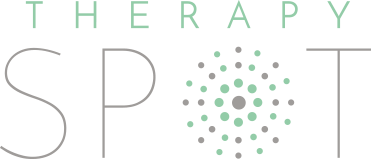Communication disorders and difficulties are common and can have more of an effect on your life than most may think. Even mild communication difficulties can interfere with your day-to-day and make things more challenging. Professional speech therapy can help greatly, even more so if you opt for private sessions.
Many techniques are used in private speech therapy for adults with communication difficulties. Different things will work better for different people, so it’s important you work closely with your therapist to discover what’s best for you. Private speech therapy allows you to try different things and create a personalized plan with your therapist.
Common Speech Therapy Techniques
There are many techniques out there, it can be hard to know what you need. Here, we’ll look at some of the most common and versatile speech therapy techniques. Once taught in therapy, many techniques and exercises can also be repeated and worked on at home to help you progress faster!
While many techniques are applicable to children and adults, they’re still approached differently. With kids, they’re often made into games and supplemented with pictures or fun activities. This helps alleviate pressure and makes things easier and more interesting. This isn’t necessary with adults as their attention spans are longer and they’re able to willingly invest themselves into their therapy.
Language Intervention
This is a practical approach wherein patients are taught to pronounce words properly and then practice this pronunciation. The idea here is to make proper pronunciation second nature and it helps them learn how to put together a coherent sentence.
It’s a common technique for language disabilities and speech delays. Role-playing and similar activities are most often used to put this technique into practice.
Articulation Therapy
Articulation therapy is a common technique used when speech or language difficulties have resulted from illness or injury. Here, patients are asked to articulate specific parts of speech and practice producing particular sounds properly.
This technique often starts seeing results in just a few weeks, so it can be a good place to start.
Oral Motor Therapy
Oral motor therapy focuses more on the physical body parts that produce speech. The muscles around the mouth are central to this. It also includes anything that a patient is struggling with or that may not be functioning properly.
This therapy utilizes specific exercises that strengthen the muscles and body parts that control speech. By making these stronger, it becomes easier for the patient to speak and articulate properly. It can also become easier to progress in other forms of therapy when the necessary muscles are stronger.
This therapy is great for those who have suffered injury or trauma to speech-related body parts. This type of therapy can also be used to treat eating and swallowing problems, which sometimes go hand in hand with speech difficulties.
Mouth Exercises
There are plenty of mouth exercises that increase strength and motor function on and around the face and mouth. Your therapist will be able to determine the best ones for you based on your specific difficulties, and they’ll teach you how to do them properly.
You’ll spend some time in therapy working on them, but mouth exercises are great to take home. Your therapist may suggest a certain amount of time and/or repetition for each exercise. You’ll see better and faster progress when you do your” homework” and practice these exercises outside of your sessions!
These exercises can also improve your confidence as you’ll feel more equipped to pronounce and articulate words correctly.
Breathing Exercises
Breathing exercises are another that you can often take home with you and work on by yourself. Breathing exercises go hand-in-hand with speech therapy for those that have trouble with volume, and with coordinating voice, articulation, and breathing to create proper speech.
Breathing exercises help you learn to control your breath and may also make certain sounds easier to pronounce. Breathing exercises help you become a more effective communicator overall, and are especially good for treating those with a stutter.
Certain breathing exercises are good for those with anxiety about speaking, as well. Breathwork can help patients learn how to slow down their pace and pause when necessary. Not only can this alleviate and manage their anxiety but it makes their communication clearer.
Tongue Exercises
The tongue plays a huge role in proper pronunciation and articulation. Tongue exercises can not only help strengthen the muscle but also teach a patient to have more control over it. By learning better control over the tongue and its sounds, effective communication, and confident speech become easier.
Social Exercises
Speech disorders and difficulties have a huge effect on one’s social interaction. This applies to casual, social situations with friends and professional settings like the workplace. Speech difficulties may make it harder to get your job done, or harder to interview for a job you’d love to have!
Because social interaction is such a big factor, some speech therapists use this as a technique in their therapy. For instance, they may use memory and problem-solving exercises to help improve overall communication.
Another common method is conversation exercises. By simulating conversations, a patient can learn how to speak, react, and converse in “real-time” and with authentic circumstances.
Of course, the setting of a private speech therapy session removes any pressure or anxiety around real conversations. This can also help with any anxiety or confidence issues you may have around holding a conversation.
There Are Speech Therapy Techniques for Everyone
Speech therapy can help anyone with even the slightest speech difficulty or concern. Many people with mild difficulties may think therapy isn’t necessary. This can be true if your issue truly doesn’t have a negative effect on your life, but you can still seek improvement if you wish.
Even a slight improvement can enhance your communication and boost your confidence! If you’re unsure where to start or even what type of therapy may help, don’t hesitate to contact us today. We are ready and willing to answer questions and can provide proper recommendations to move forward with private speech therapy.





